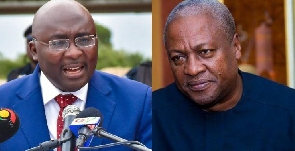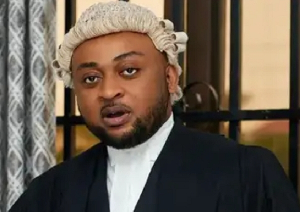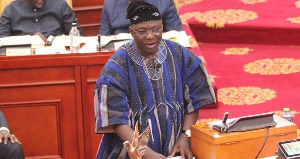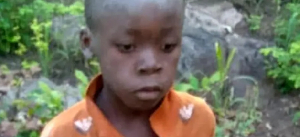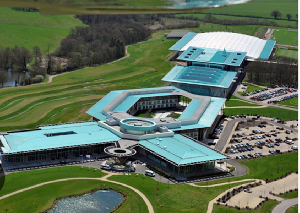1. Introduction
Throughout history, language has been a potent tool for expressing and shaping political views. Politicians carefully select their words in political discourse to connect with their audience and achieve their objectives—a practice that dates back to the classical civilizations of Ancient Greece and Rome. In Ghana, where democracy continues to evolve, the rhetorical strategies and linguistic choices of key political figures like John Mahama and Mahamudu Bawumia warrant closer examination, particularly in the high-stakes lead-up to the 2024
general elections.
Amid Ghana’s charged political atmosphere—characterized by heated parliamentary
debates, bustling streets, impassioned campaign rallies, and the relatively watchful eye of the media—language emerges as a pivotal force. It shapes perceptions, stirs emotions, informs policies, drives actions, and ultimately steers the nation’s trajectory. Yet, beneath this linguistic performance lies a critical question: what distinguishes genuine campaign promises from deliberate deceptive tactics? This piece looks at the campaign and linguistic strategies
of John Mahama and Mahamudu Bawumia.
By examining their speeches and public statements, I offer insights into how their use of language has shaped public perceptions and influenced their political trajectories. These insights highlight the critical role of campaign promises in Ghanaian politics and the fine line between persuasion and manipulation.
John Mahama, former president and candidate of the National Democratic Congress (NDC), is widely recognized, particularly by his party’s supporters, for overseeing significant infrastructural development during his tenure from 2012 to 2016. He has earned the title “King of Infrastructure” from sections of the Ghanaian public. However, his presidency was also marred by criticisms of economic hardship and perceived corruption, leading the opposition to label him “incompetent.” After unsuccessful attempts in the 2016 and 2020 elections,
questions persist, even among his own party members, about his chances in a third run against the New Patriotic Party (NPP). With the December 7, 2024, elections on the horizon, Mahama's campaign has taken on a more intense and focused tone, reflecting the lessons learned from previous defeats.
Mahamudu Bawumia, the current Vice President of Ghana, has held this position since the New Patriotic Party's (NPP) electoral victory in 2016. A former Deputy Governor of the Bank of Ghana, Bawumia was initially celebrated as a prominent economist, with party members dubbing him the "Economic Wizkid." Appointed head of the Economic Management Team (EMT), he has been tasked with restoring economic stability and growth. However, in a surprising shift, Bawumia has emerged as a strong advocate for digitalization, playing a significant role in advancing this agenda. Despite his contributions to the digital sector, his
political persona has often been characterized by a penchant for grandiose and grandiloquent rhetoric, mendacity and overblown promises, a trend that has persisted since his nomination as Akufo Addo’s running mate in 2012.
Thus, the exuberance of his assurances is often deemed excessive and unattainable, and this has raised a great deal of skepticism within the Ghanaian public, including discomfort within some members of his own party. His political discourse is frequently seen as flamboyant, leading to derogatory epithets such as "Lord of Lies" and "Bawuliar," “King promise” reflecting a perception of him as someone prone to making hollow promises without genuine intent to fulfil them. Ahead of the December elections, a look at Bawumia’s promises therefore becomes essential—not only to distinguish genuine
commitments but also to expose contradictions and potential deceptions within his political rhetoric.
Generally, both Mahama and Bawumia and their campaign teams have employed various ways to garner support in their presidential campaigns. These tactics reflect a mix of persuasive efforts and deceptive practices, with the latter appearing to be more prevalent.
2. John Dramani Mahama
In his bid to secure public support, Mahama has presented an ambitious array of promises across various campaign platforms, with a strong emphasis on youth empowerment. Central to his pledges are job creation, timely posting of health professionals, and tax relief through the abolition of what he describes as "obnoxious" taxes. He has also promised to establish a Cancer and Kidney Disease Trust Fund, run a lean yet highly efficient government, and empower anti-corruption institutions to operate independently.
Mahama's infrastructure and development agenda is equally bold, featuring plans to complete the Eastern Corridor Road, construct an airport and a dialysis center in the Upper East Region, and initiate irrigation systems to bolster agriculture. Additional commitments include building a Cargo Service Center at Tamale Airport, establishing tomato and cashew processing factories in the Bono Region, reviving the Pwalugu Tomato Factory and Zuarungu Meat Factory, abolishing the payment of ex-gratia, and decongesting Accra by relocating
some ministries and many other bold promises. These initiatives reflect Mahama’s vision for a comprehensive transformation of Ghana’s economic, social, and infrastructural landscape, underscoring his intent to address pressing national challenges with bold and far-reaching solutions.
These promises align with Mahama’s vision of “resetting” and “building the Ghana we want together.” However, they have raised valid questions about how he intends to achieve such sweeping goals within a four-year term. Among his proposals, the most talked-about—and arguably his flagship and enterprising policy—is the proposal of a "24-hour economy," aimed at maximizing productivity, driving efficiency, and transforming Ghana into an export-led economy.
While this policy has sparked excitement, especially among unemployed youth, it
has also drawn criticism and skepticism. The ruling NPP has labeled it impractical, though some argue this opposition stems more from fear of its potential impact than genuine doubts about feasibility.
The debate underscores the boldness and high stakes of Mahama's campaign as they have a real potential of significantly shaping the electoral discourse, voter behaviour and pattern.
Thus, many serious questions arise about the feasibility, realism, and
consistency of some of Mahama’s promises and statements. Certain pledges appear
superficial or unachievable, while notable contradictions between his past and present assertions expose potential strategic manipulations and deliberate deception.
For instance, during the 2016 general election campaign, Mahama, seeking a second term, declared on August 16, 2016: “Four years is not enough for any president,” urging voters to grant him another term to complete his vision. Yet, in a striking reversal, at his official campaign launch on July 7, 2024, Mahama proclaimed: “I believe that four years is enough to reset the country so that future generations can build on it.” This stark contradiction highlights
a rhetorical shift seemingly driven by political convenience. While in power, he deemed four years insufficient; now, in opposition, he claims it is adequate.
Such inconsistencies cast doubt on Mahama’s sincerity, suggesting his evolving positions are not rooted in principle but in calculated attempts to appeal to voter sentiment.
This deliberate distortion of facts raises skepticism about his intentions, as it undermines expectations of truthfulness and integrity in political discourse. Mahama’s political communication, therefore, invites critical scrutiny from the Ghanaian public, as it reflects a pattern of tailoring messages to suit his immediate personal political goals over broader national interest.
Moreover, Mahama’s promise to “prosecute anyone who has misappropriated state funds” may initially sound heartwarming and reassuring, but it raises doubts about its genuineness.
Many Ghanaians likely view this statement as a strategic ploy to garner votes rather than a commitment to meaningful action. Under the current NPP administration, corruption and high-profile scandals have become so commonplace that a day without such news feels like an anomaly.
This pervasive corruption paints a bleak picture of a country sinking deeper into mismanagement and a lack of accountability. For self-serving reasons, many cases of embezzlement, mismanagement, and corruption remain unaddressed and go unpunished, leaving citizens frustrated, disillusioned, and angry. Mahama seems to be tapping into this public outrage, presenting himself as a leader who will enforce accountability and restore integrity if elected. However, history tells a different story. Similar promises made by the NDC before the 2008 and 2012 elections resulted in little to no substantive action once in office.
Given this precedent, Mahama’s latest pledge ahead of the 2024 elections risks being perceived as yet another deceitful promise designed to manipulate voter opinion. Without clear and credible plans to back his words, many Ghanaians may suspect this is merely a recycled tactic to secure power. Between now and December 7, Ghanaians face the challenging task of deciding whether his promises reflect genuine capability or are merely tailored rhetoric designed to secure votes
3. Mahamudu Bawumia
Just as Mahama positioned himself as the best choice for Ghana, Bawumia has similarly portrayed himself as a "problem-solver and generational thinker with innovative ideas," boasting a solid track record as Vice President. While acknowledging that he has never held the presidency, Bawumia exudes confidence that his tenure as Vice President has equipped him with the relevant governance skills and mindset needed to effectively tackle Ghana’s development challenges as a hard-working leader.
At least he believes that “It is possible”.
Although his promises sound optimistic and appealing, there is little empirical evidence to substantiate his positive self-presentation. Unlike Mahama, who has a track record as a former president, Bawumia faces the added challenge of convincing the public of his readiness to lead at the highest level.
However, he could also represent a beacon of renewed hope for
Ghana—a fresh perspective eager to bring an exuberant and innovative start.
Known for his unrestrained and flamboyant campaign promises, Mahamudu Bawumia, just like Mahama has unveiled an ambitious agenda that includes job creation for the youth through IT training, transitioning Ghana to a cashless economy, and introducing significant tax relief measures such as abolishing the betting tax, VAT on electricity, the emissions tax, and the e-levy.
He has also pledged to combat corruption through the introduction of the e-cedi,
oversee extensive infrastructural developments like building astroturfs and affordable housing units in every district, and construct key projects such as the Pwalugu Dam and an airport in Cape Coast. Additionally, Bawumia promises energy sector reforms with 2,000 MW of solar power to meet 50% of the country's energy demands, a lean government capped at 50 ministers, free tertiary scholarships for persons with disabilities, 100% Ghanaian ownership of natural resources, one laptop per tertiary student and many other bold undertakings.
While these promises may sound grand and transformative, they raise significant questions among Ghanaians. Many view them as overly ambitious, superficial, and disconnected from the realities of a struggling economy. The hesitancy is heightened as these pledges come on the back of ongoing economic hardships under Bawumia's tenure as Chairman of the Economic Management Team.
Stepping back to evaluate some of Bawumia's promises, it becomes clear that many are vain and designed to turn public opinion to his advantage. A prime example is his much-touted pledge on September 8, 2016, where he declared: “During the NDC administration, taxes were even imposed on condoms and cutlasses. This has increased the burden on the private sector and is a disincentive to production. To address these challenges, the NPP will shift the focus of economic policy away from taxation to production. So, we are going to move away from taxation
to production.” This promise, along with similar declarations, played a significant role in the NPP’s 2016 electoral success, as many Ghanaians were eager to embrace what appeared to be a tax-relief agenda. However, the reality that unfolded has been deeply disappointing.
Contrary to his assurances, the current government under Bawumia’s watch has introduced a slew of new taxes, including the e-levy, a COVID tax (despite the pandemic being nearly a past/dead issue), an emissions levy, and betting and lottery taxes. Ironically, some of these very taxes are now the target of his renewed promises of abolition.
The situation became so extreme that his government even considered taxing sanitary pads— a stark departure from his original commitment to prioritize production over taxation. This inconsistency raises serious questions about Bawumia’s integrity. His past promises, now proven deceptive, suggest a calculated attempt to mislead Ghanaians into granting him power, only to face the possibility of another betrayal through unfulfilled promises.
Bawumia went further to make another grandiose and enticing claim about Ghana's wealth— a statement that, in hindsight, appears to have been a deliberate falsehood: “I worked at the Bank of Ghana and so I know that Ghana is rich. It is because the managers of the economy are incompetent, and all that they think of is borrowing. The NPP, if voted, will harness resources to develop Ghana.
I am telling you we can develop Ghana without borrowing; the money is here.”
With his credentials and experience as a former Deputy Governor of the Bank of Ghana, Bawumia's assertion carried significant weight, convincing many Ghanaians that a more competent administration could unlock the nation's wealth without resorting to borrowing.
His confident tone, coupled with his insider knowledge, inspired trust among voters, contributing to the NPP's electoral victory. But what followed this alluring promise? Within just six months of taking office, Bawumia’s government borrowed approximately $21 billion, instantly undermining the reliability of his earlier claim. By July 2024, Ghana's public debt had ballooned from GHC 86 billion in 2016 to a staggering GHC 761.1 billion—a recordbreaking increase of over GHC 670 billion (Ministry of Finance Mid-Year Review). This
unprecedented level of borrowing starkly contradicted his earlier assurance that Ghana could develop without loans, raising serious questions about the sincerity of his pre-election rhetoric.
In fact Bawumia’s government has borrowed more than any other in Ghana's
history—a complete deviation from his emphatic promise to shift from borrowing to resource-driven development. For someone with his economic background, Ghanaians expected transparency and a realistic assessment of the country’s financial health. Instead, his exaggerated claims and subsequent actions suggest intentional deceit aimed at securing political power.
With this in mind, trusting Bawumia’s current campaign promises ahead of the 2024 elections risks inviting another cycle of broken promises, disillusionment, and frustration. His track record paints a troubling picture of grand rhetoric masking an inability— or unwillingness—to deliver on assurances, making it a risky proposition for Ghanaians to embrace his claims without skepticism.
Both Mahama and Bawumia have promised to abolish the controversial e-levy, despite its integral role in Ghana's ongoing IMF loan program.
Economic and political experts argue that scrapping the levy during the IMF program would be nearly impossible. This reality suggests that both leaders are making promises they know are unfeasible, leveraging public dissatisfaction to gain votes. The e-levy, introduced amidst widespread public outrage, became a symbol of broken promises, particularly for Bawumia, whose government initially pledged lower taxes. For Mahama, the promise to abolish the e-levy appears opportunistic, capitalizing on public frustration while ignoring the levy’s critical function as collateral for Ghana’s loans.
Bawumia’s role as chairman of the Economic Management Team further
complicates his stance. Critics contend that if he genuinely intends to abolish the levy, he should act now rather than waiting until he becomes president. His inaction has eroded public trust, leading many to view his promise as empty talk, akin to the unfulfilled tax promises of the NPP’s 2016 campaign.
4. Conclusion
To conclude, it must be mentioned that these campaign messages represent only a fraction of the discourse employed by both Mahama and Bawumia. While their promises blend some genuine intentions, they heavily rely on deceptive tactics, exploiting public ignorance and emotional appeals to win support. As Ghana approaches the December 7 elections, voters face a choice between the “apprentice” Bawumia, who refers to himself as a "Driver’s Mate" ready to take the steering wheel, and Mahama, the veteran driver banking on his experience.
For NDC supporters, a vote for Bawumia signifies a continuation of Akufo-Addo’s governance, while NPP sympathizers view Mahama’s return as a recipe for disaster. Ultimately, Ghanaians must decide on December 7 which leader they trust to deliver on their promises.
Their choice will reflect whose vision they find more achievable and practical.
As the elections loom, peaceful and constructive politicking is imperative. Ghanaians are therefore encouraged to vote responsibly, accept legitimate outcomes, and prioritize national unity over political divisions.
God bless our homeland Ghana and make our nation great and strong. Wishing all Ghanaians peaceful and successful elections!
Click to view details



Opinions of Wednesday, 27 November 2024
Columnist: Dr. Alexander Angsongna
Promises, contradictions, and realities: Insights on Mahama and Bawumia's political language in Ghana's 2024 presidential race
Entertainment






